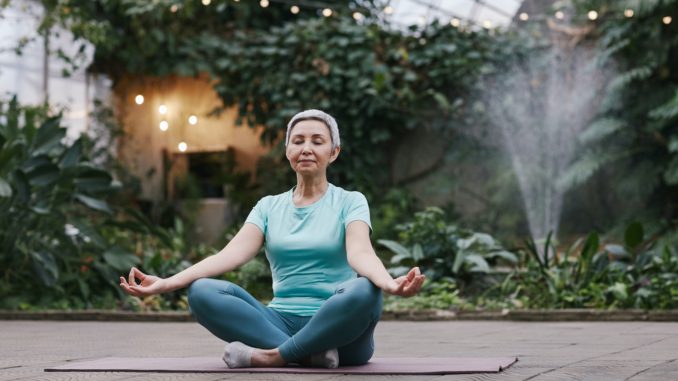
By meditating, we tend to derive long-lasting, far reaching benefits and change our lives for the better. At the same time, we are able to connect better, understand our pain, reduce stress levels, be kinder towards ourselves and improve focus. But then to enjoy such benefits, you need to learn how to meditate correctly.
Reasons to meditate
- Reduce brain chatter
- Improve focus
- Connect better
- Reduce stress levels
- Get to know your pain
If you plan to start meditation, then you will require a few important tools. It includes a mat, a comfortable, noise-free place to sit & relax, be kind to yourself and have some patience. There is no need to invest in any expensive membership or additional gears. Following this, anyone and everyone can indulge in mediation during their free time. There is no specific timing rule to practice it. Knowing how to meditate can make it feel simple and easy.
- Take a seat: Place the mat on the ground at a place that is free from surrounding disturbances. It should make you feel relaxed, calm & quiet.
- Set desired time limit: Beginners should start practicing for short time like 5-10 minutes. As days progress, you will feel more comfortable, relaxed and gain more confidence in your meditation abilities. Accordingly, you can increase your timer depending on your comfort level.
- Feel your breath: You just need to follow your breath sensation as it moves in & out.
- Notice your body: If you don’t have a mat, you may simply sit on a chair keeping your feet on the ground. You may even sit loosely in cross-legged position or kneel. Simply ensure being stable as well as in a position that allows you to be comfort and perform the practice for a long time possible.
- Take note as your mind starts your wander: Your attention is likely to waver as your thought moves on from your breath to other places. As you note this change within few seconds, minute, 5 minutes, etc. try to get your focus back to your breath.
- Do not be harsh to yourself: It is quite natural for the idle brain to get easily distracted and wander places. Don’t get obsessed over your thought content or judge yourself. Simply come back.
- Be kind: Close the practice, but tenderly. Lift gently your gaze. Try to notice sounds emerging in the surrounding environment. Note your emotions, thoughts and how the body feels.
This is how you should practice meditation every day.
